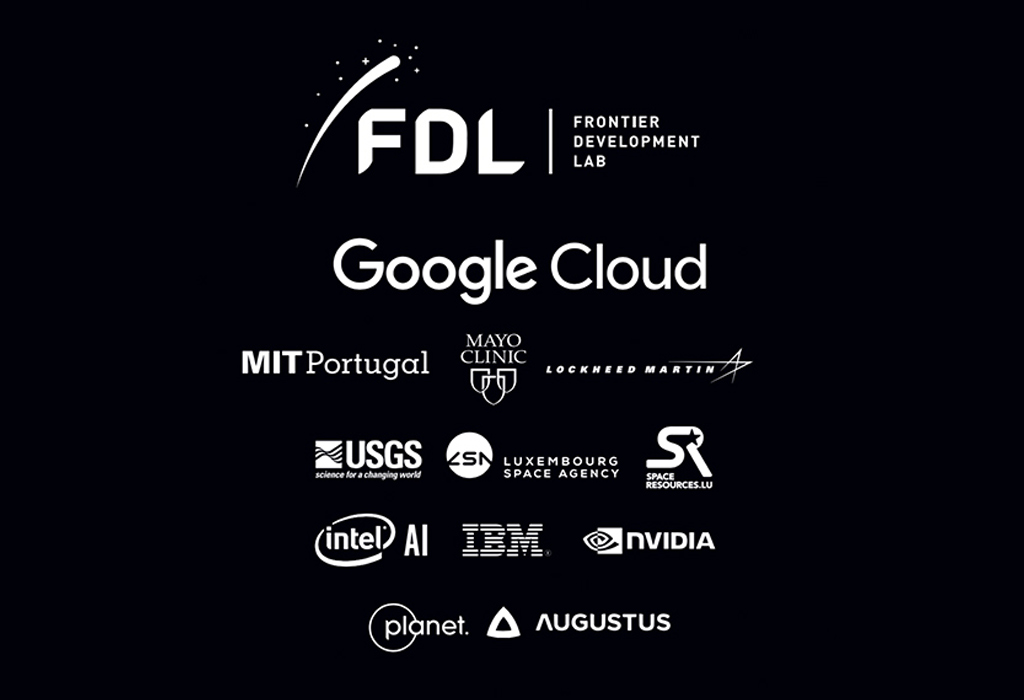MIT Portugal team joined AI Research for NASA FDL - Challenge Earth Intelligence Engine
MIT Portugal Program (MPP) is sponsoring one of the FDL’s teams to work on the Earth Intelligence Engine. This is the first time that MPP is partnering with NASA, SETI, and various private organizations and universities for space science.
Last week, NASA’s Frontier Development Lab, the SETI Institute, and FDL’s private sector and space agency partners kicked off its fifth annual summer research accelerator in an entirely virtual structure due to the COVID-19 pandemic.
“I’ve admired and highlighted FDL as a best practitioner in innovation. FDL 5.0, MIT, and the MIT Portugal Program are delighted to partner on the Mission Control for Earth Challenge,”said Dava Newman, MPP Faculty Director. “We envision accelerating positive change for Spaceship Earth’s ocean and land subsystems to address the urgent needs of a changing planet and climate. These future leaders and researchers are leading the climate revolution armed with AI tools, but more importantly, with the passion to use AI, science and technology for the betterment of humanity.”
The MPP team will work to explore how we might deploy simulation acceleration methods and /or generative computer vision models (such as GANs) to produce predictions of future climate conditions. The aim is to inform long-term resilience planning strategies, aka satellite images from the future. To advance UN SDGs 13, 14, and 15, they will combine physics-based climate models with generative computer vision methods to simulate high-resolution images of Earth under future climate conditions. The tool will access historic and real-time data from land, ocean, and atmospheric systems, as well as outputs from weather and climate models to extend and improve existing models. Pairing the climate data with real satellite imagery, the tool will output synthetic, photorealistic satellite images of the modeled regions.
Meet the team and learn more about their challenge here.
About the NASA Frontier Development Lab (FDL) FDL 5.0
Originally posted: Seti Institute Press Release
Frontier Development Lab (FDL) , hosted by the SETI Institute, is an applied artificial intelligence research accelerator developed in partnership with NASA’s Ames Research Center. Founded in 2016, the NASA FDL aims to apply AI technologies to challenges in space exploration by pairing machine learning expertise with space science and exploration researchers from academia and industry. These interdisciplinary teams address tightly defined problems, and the format encourages rapid iteration and prototyping to create outputs with meaningful application to the space program and humanity.
Now in its fifth year, the FDL research partnership with NASA and private industry moved to an entirely virtual structure due to the COVID-19 pandemic. Eight US teams with NASA, USGS and private funding, normally hosted at the SETI Institute, and three teams in Europe with ESA funding, normally hosted at Oxford University, are now embarked on research challenges from home that apply AI and machine learning to address critical problems for the benefit of all humankind. US teams will address questions in heliophysics (the science of the Sun and its relationship with the solar system), Earth science, astronaut health and lunar exploration.
The teams, comprised of early-career PhDs in AI and interdisciplinary science domains, are supported by subject matter experts from NASA (including NASA Headquarters, NASA Ames Research Center and NASA Marshall Space Flight Center) and the SETI Institute together with FDL Partners: Google Cloud, Mayo Clinic, Lockheed Martin, MIT, USGS, IBM, Intel, Luxembourg Space Agency, NVIDIA, and Planet. Along with expertise, FDL partner organizations support advanced AI research by providing funding, hardware, AI/ML algorithms, datasets, software and cloud-based super-compute resources.
“We celebrate the 5th anniversary of FDL with new partners, including the Mayo Clinic, MIT, USGS and Planet Labs – and new challenges as we enter the uncharted waters of executing FDL in a virtual environment,” said Bill Diamond, President and CEO of the SETI Institute. “We are matching these extraordinary times with extraordinary researchers, faculty, partners and research topics, and once again, we anticipate extraordinary results.”
Teamwork is core to the FDL process. This year’s program is comprised of a diverse group of over 100 researchers located around the world, representing important diversity in nationality, race and gender and more to bring their unique perspectives to this intense and rewarding work of developing cutting edge AI applications for space exploration and humankind.
About the SETI Institute
Founded in 1984, the SETI Institute is a non-profit, multi-disciplinary research and education organization whose mission is to explore, understand, and explain the origin and nature of life in the universe and the evolution of intelligence. Their research encompasses the physical and biological sciences and leverages expertise in data analytics, machine learning and advanced signal detection technologies. The SETI Institute is a distinguished research partner for industry, academia and government agencies, including NASA and NSF.

